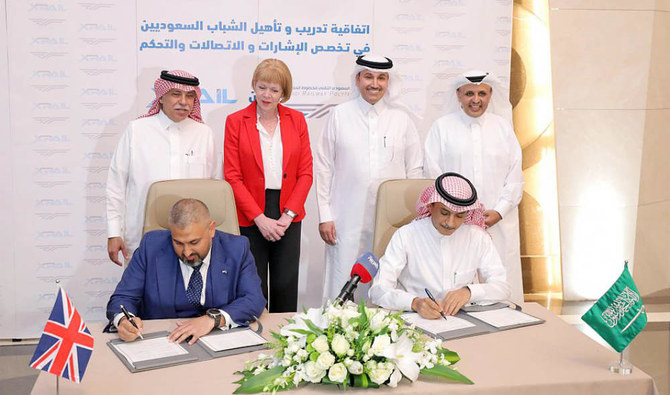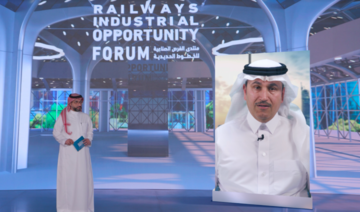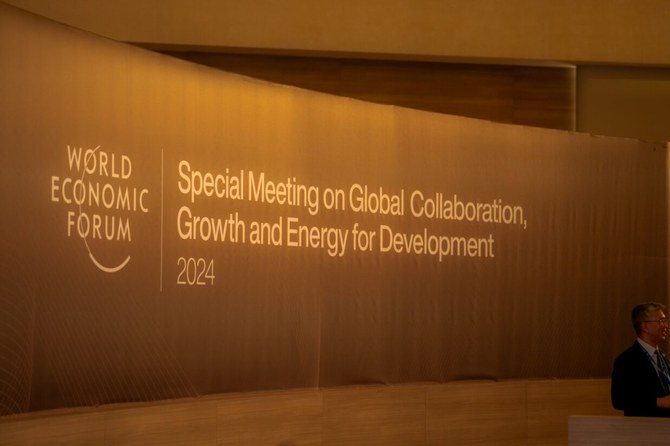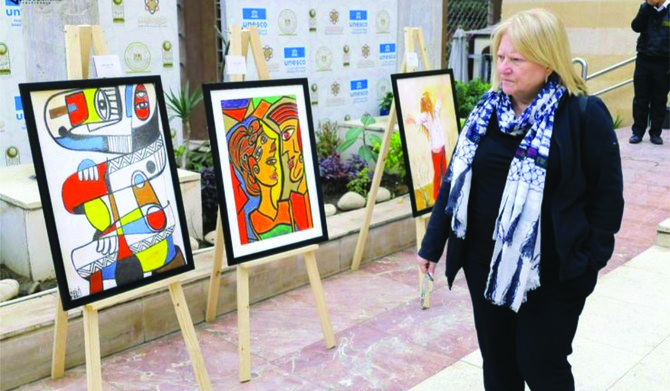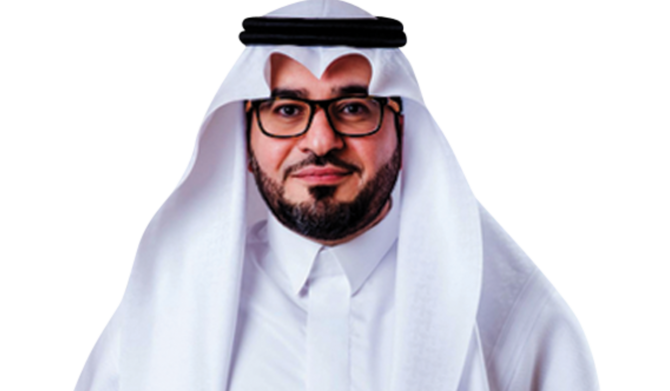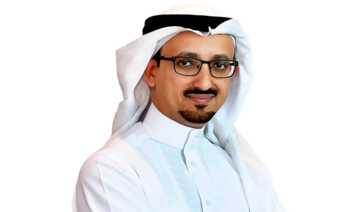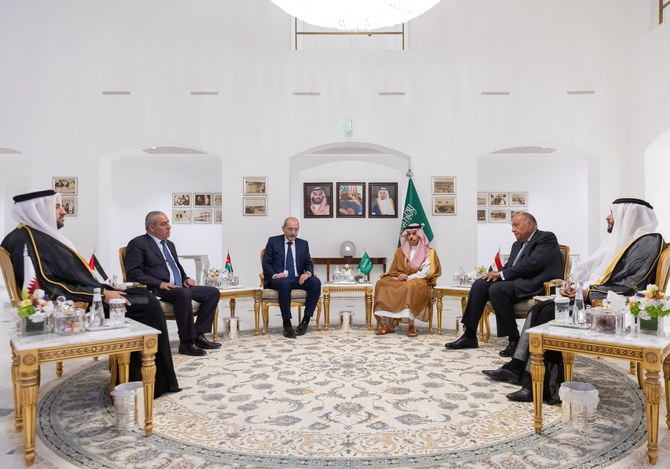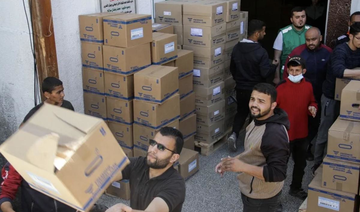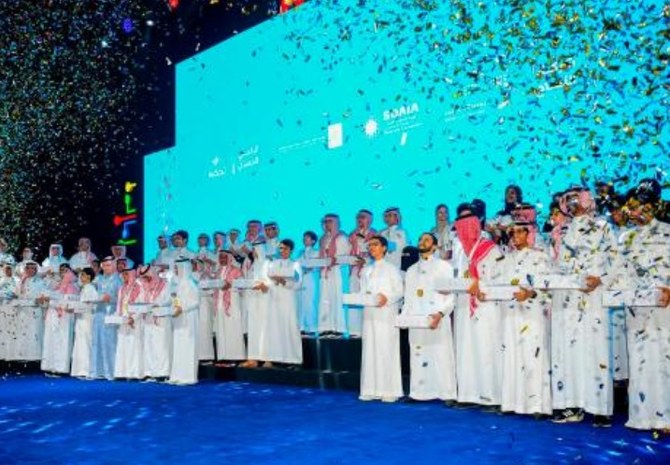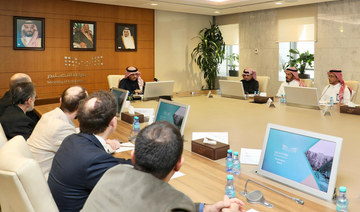RIYADH: Saudi Arabia aspires to strengthen its position as a global logistics hub connecting three continents, improve services and increase integration between logistics systems and modern modes of transportation.
Eng. Abdulaziz Al-Sugair, the director general of the Saudi Railway Polytechnic Institute, and Munir Jolamyehiya, the director general of the British X-Rail Group, signed a training agreement to train Saudis in the railway industry in the Kingdom.
The agreement was signed in presence of the chairman of the Saudi-British Joint Economic Committee, Dr. Majed Al-Qasabi, the Saudi Minister of Transport Saleh Al-Jasser, the UK Minister of Railways Wendy Morton, Dr. Rumaih Al-Rumaih, the chairman of the Public Transport Authority and the Saudi Railway Polytechnic Institute, and Saudi Deputy Minister of Transport and Logistics Services Eng. Badr Abdullah Al-Dalami.
FASTFACT
The agreement was signed in presence of the chairman of the Saudi-British Joint Economic Committee, Dr. Majed Al-Qasabi, Saudi Minister of Transport Saleh Al-Jasser, UK Minister of Railways Wendy Morton, Dr. Rumaih Al-Rumaih, the chairman of the Public Transport Authority and the Saudi Railway Polytechnic Institute, and Saudi Deputy Minister of Transport and Logistics Services Eng. Badr Abdullah Al-Dalami.
Al-Sugair said the collaboration with X-Rail Group is a new step towards the development of national skills in transportation, particularly rail transport services. He stated that the agreement intends to train and qualify high school graduates and equip them to work in a variety of industries. These include signaling, communication, and railway control systems, in order to assist the transportation labor market and meet the growing demand for specialist cadres in this industry.

Chairman of the Saudi-British Joint Economic Committee, Dr. Majed Abdullah Al-Qasabi pose for a group photo with Saudi and UK officials in Riyadh. (SPA)
The training term lasts 18 months, with 12 months spent at the institute and 6 months spent on the job at the company’s facilities, or on projects that it executes, operates, and maintains.
More than 400 graduates were able to work in various disciplines in the rail transport business since 2021, according to the institute.
Among the goals of the National Strategy for Transport and Logistics Services is to increase the total lengths of future railways to 8,080 km, including the “land bridge” project with a length of more than 1,300 km, which will have a capacity of more than 3 million passengers and more than 50 million tons of freight annually.
Other goals include connecting the Kingdom’s ports on the Arabian Gulf coast with the ports on the Red Sea coast. New and exciting opportunities for this line will be created by it passing through modern logistic centers, economic activity centers, industrial cities and mining operations, enhancing the Kingdom’s logistic performance index to be among the top ten in the world.
“Training plays a big role in employing job-seekers,” believes Awwad Al-Dhafeeri, CEO of Shabakat ABAD training Institute.
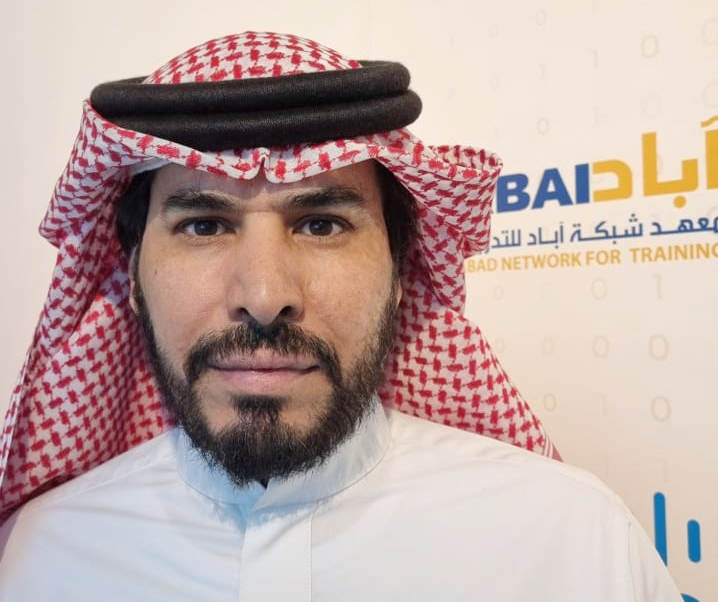
Awwad Al-Dhafeeri, CEO of Shabakat ABAD training Institute.
Al-Dhafeeri told Arab News that jobs that demand specific abilities necessitate greater training to master the work, pointing to the profound changes that have occurred in professions as a result of expanding technology.
In previous decades, job acceptance was based on simple skills, and employees would acquire further necessary skills with experience, but at the moment, most jobs are concentrated in the private sector, which prefers employees to already have the required skill, with the rate of job acceptance much higher for those who have training in modern-age areas than those who do not.
Al-Dhafeeri, who has spent about 15 years in the management of training centers, advises young people not to rely entirely on educational attainment during their years of study in order to get jobs, but rather to get the appropriate training during their studies, including universities so that they can compete after graduation.
Since “we live in an era of digital transformation and the use of technology in various areas of life where the machine has replaced the human,” and many employment opportunities have been lost, he said, young people must hone their skills through training related to technological skills, according to their competence.



